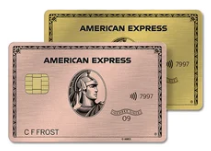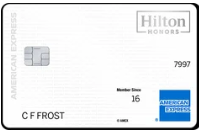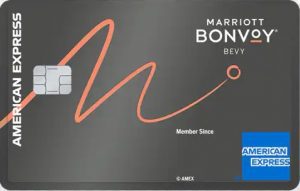Table Of Content
In this chart compiled with data from TransUnion and The Wall Street Journal, you can see that over the last decade the outstanding balances have increased from $49 billion to $156 billion:
When you get a personal loan, it doesn’t really matter how much principal you borrow – you will pay various fees related to the loan. However, these fees come in many names, amounts, frequencies, and times although some of them are hard to notice when you’re getting the loan.
The good news is, there are certain steps that you can take to know what these fees are, and how to possibly avoid them.
First, we’ll run you through the kind of hidden fees that lenders stick in between the terms and conditions of the loan and how much they cost. More importantly, we’ll teach you how to dodge them so you can save money.
Check out the rest of the article on the different fees you might encounter when you take a personal loan. Then, do some comparison and save yourself from high charges.
Do Personal Loans Have Fees?
Yes, personal loans have fees just like other loans. Some might have application fees and others will not. Usually, they are not more than $50. Origination fees are usually 1% to 6%. Prepayment penalties are around 2% to 5% of the loan amount. Late payment fees usually range from $24 to $50 or 3% of monthly payments.
The late fees and prepayment fees can be avoided as long as you follow the terms and conditions of the loan. Make sure you can make the payments on time to avoid penalty fees.
Top Offers



Top Offers From Our Partners
How Much Will a Personal Loan Cost Me?
This depends on the size of the loan you are taking out. Many loan websites have calculators on them where you can type in the loan amount you are receiving and the interest rate. You also need to type in the loan repayment terms as this will depend on the size of your monthly payment.
Knowing how much you will every month is very important when trying to figure out how much money you need to budget to pay off your loan every month.
Here are some of the common fees that lenders collect from personal loan borrowers.
Application Fee
The first common fee is a loan application fee which a borrower has to pay for getting a loan. The application fee will vary according to the type of loan you are applying for and it’s something that you pay outright and upfront when you submit your loan application.
The loan application fee will also differ among lenders and you can find some lenders who will not collect this fee at all.
Online lenders normally charge a lower loan application fee because their online process skips with the usual expenses that go along traditional paper processing, face-to-face interviews and loan consultations.
Before you pay this fee, check the lender’s credit requirement to see if you would qualify. Otherwise, you might end up paying a loan application fee to a lender who will automatically reject your application.
Origination Fee
The originating fee pays the costs associated with originating a loan. This fee takes care of activities like doing the paperwork, calculations for your interest rate, and determining your monthly payments.
In essence, the lender uses the origination fee to do the research on the potential borrower. Many lenders highlight that they waive this fee but there are still some lenders who still collect this charge from the borrower. A borrower can either pay the origination fee by opting for the lender to include it in the monthly cost of the loan or simply take it out of the proceeds of the loan.
Depending on your lender and the type of personal loan product you are availing, the fee will be a percentage of your loan amount. They range from an average of 5% that most lenders charge, or as high as 8% that others collect
Can You Negotiate Loan Origination Fees?
Origination fees are some of the only fees that are negotiable. If you are taking out a large personal loan, you might be able to negotiate the origination fees much easier than if you are just taking a small loan.
You might have to agree to a higher interest rate in order to lower the origination fees. If you have worked with the lender before you bank with the bank that is giving you the personal loan, you will be able to negotiate origination fees easier because you have a relationship with the bank and can prove you are a good borrower. Personal loans for good credit may not charge origination fee in some cases.
Missed/Late Payments
Even when you’re paying off your loan, it doesn’t exempt you from other fees that may arise. When your repayment period starts for your personal loan, make sure to meet your monthly deadline.
Otherwise, you’ll damage your credit because of a late payment. You will also spare yourself from a late payment fee, which many lenders collect in the form of a flat fee. But some lenders collect a late fee as a percentage of your payment. If you know you can’t afford to make your payment on time for the next due date, it’s wise to contact your lender.
Some may be willing to extend your payment deadline, or give you a grace period, or accept a partial but on-time payment, or provide other options so you can avoid a late payment fee. The lender may ask you to pay other costs depending on specific payment types and charges for late or missed payments.
Prepayment Fee
Lenders collect a prepayment fee when you pay back a loan ahead of schedule. That’s right – paying off your loan early opens you to another charge, which some lenders also appropriately call an exit fee. Typically, a borrower has to pay this fee if he pays off a loan in full before the scheduled final payment. For instance, if your personal loan has a term of five years and you pay it off in four years, you could be liable for an exit fee if your original loan agreement carries such a provision.
From a financial point of view, an exit fee is a justified charge. This fee offsets the interest income that the lender will lose from the term of the loan that the borrower skips when he pays off the loan earlier. The lenders are merely trying to compensate for their loss of income by collecting the prepayment fee.
Borrowers would argue that when they repay their loan, the lender is going to get all of their money back and therefore removes any risks plus, there’s an opportunity to lend the money to other borrowers. So, they dislike the prepayment penalty the most and often look for the flexibility to repay a loan early without any disadvantage on their part.
Due to the obvious aversion of consumers to this fee, many lenders are now striking it off their list of charges. Chances are, your lender will not charge this fee, but just to make things clear, you should always find out. Similar to the prepayment penalty, many once-popular personal loan fees are easy to skip today.
The trick is to shop around and do a comparison of the options so you can find one with the most affordable fees and charges. It can lower your loan costs now, and also help you pay off your loan much faster in the future.
How to Avoid Paying Fees on Personal Loans
Don’t totally believe those commercials that proclaim: “No hidden charges!” because a few of them might suddenly pop-up and surprise you. The best thing to do is compare the best personal loan lenders before you decide to take out a loan. This will help protect yourself from various fees.
It will depend on your specific financial situation but you will find that each lender will have their own pros and cons when you line them in a row. That is why it is important to do some analysis before signing up with one lender.
You also want to talk to a representative who will be as transparent as possible in explaining all the terms and conditions as well as the fees involved with your loan.
Be thoroughly familiar and informed so that you can go ahead and take a personal loan. A personal loan is a good tool to use responsibly to manage your finances successfully.
Less Common Personal Loan Fees
Here are some additional fees lenders sometimes charge when you get a personal loan. While the best personal loan lenders usually skip the following fees and focus on the main fees mentioned above, there are some banks that still charge part of the following fees:
Annual Fees
You might notice that lenders pin a flat fee on the loan schedule once a year ranging from $100 and more. This cost covers the costs of maintaining your account with the lender for the duration of the term.
The good news is that not all lenders collect this fee, so by doing some shopping, you can save money by finding a lender without it. If your lender does charge an annual fee, you can still negotiate the amount.
It’s among the long-term costs that lenders can modify, especially if you are already paying other forms of administration fees.
Brokerage Fee
Some lenders often work with brokers to execute transactions or provide specialized services, and obviously, these brokers don’t work for free.
Brokers charge brokerage fees for their services such as purchases, sales, consultations, negotiations, and delivery – all or most of which, lenders will pass on to the borrowers.
Brokerage fees are common in many types of industries including financial services, insurance, real estate, and delivery services.
Commitment Fee
If you apply for a loan that the lender won’t be able to immediately fund, they might charge you an extra commitment cost, believe it or not. The rationale is this fee should make up on any interest that the lender could be charging to you on the loan amount in the meantime.
If you compute this annually, the fee could set you back about 0.25% to 1.50% of the principal amount.
Document Preparation Fee
This fee covers the cost of preparing the loan documents for your new loan or application. Some of the services you will be paying for include the application, your specific terms, and any other closing forms.
The amount will depend on how complex your loan application is. However, you may be able to find a lender that won’t charge you anything for document preparation.
Fixed-Rate Lock Fee
For a fixed-rate loan, this fee lets you lock in the fixed-rate at the time of your application for up to 3 months until settlement even if there are subsequent rate increases. Should you be able to reduce the fixed rates, the lender will apply whichever is lower between the two rates.
Processing Fee
The lender collects anywhere from 1% to 2% of the loan principal from the borrower as a processing fee. This represents your payment to the lender for doing basically what they do: to process your application.
They may be agreeable to waive this fee if you have a long-term relationship with them.
Paper Copy Fee
When you deal with an online lender, they would expect that you will do all the transactions electronically. So, when you request for a physical copy of the loan agreement for your records, the lender will charge you a paper copy fee. Some borrowers would rather pay this fee because they are uncomfortable with using e-signatures on official documents.
If you need a paper backup for your loan documents, you’ll have to shell out a fixed $10 per copy.
You can easily avoid paying this fee by forgoing a paper copy of your documentation with an online lender or by simply going traditional and borrow from a physical lender like a bank or credit union.
Another option is to download your documents, save them as PDFs (or another picture format) and print them yourself.
Credit Insurance Fee
Most personal loan providers will ask for credit insurance. This is for their protection in case the borrower suddenly becomes unable to repay the loan (for reasons like death, disability, or loss of job).
When the debtor cannot repay the loan, the insurer will assume the obligation on his behalf. Credit insurance premiums run as low as $1 to $2 a month and most lenders will incorporate them into the monthly loan payments.
But here’s the catch: credit insurance is not mandatory on personal loans. You may opt to take this service if you want but there should be no pressure because it is not a requirement on your part.
If the lender insists that you need to get credit insurance, be very wary. This is one of the signs of predatory lending practices.
Check Processing Fee
Lenders sometimes call this a check handling fee or a fee to offset the cost of your lender having to process a physical check. The bad news is, the lender will apply this charge for every check that you submit.
Lenders will consider payment on the date they receive your physical check and not the postmark date of the check (or the date you sent it). Just make sure that you provide enough lead time for transit so that your check can get to the lender in time. If it comes late, they can charge you with a late payment fee.
Nonsufficient Funds (NSF) Fee
Supposing your monthly payment becomes due and you fail to make payment because the funds in your account are insufficient or the system cannot access your account, you will have to pay a fee.
Lenders normally charge a fee of $15 for each returned or failed payment. If you successfully make your full monthly payment after the lender has charged you with an insufficient funds fee, you will bring your loan back into a ‘current’ status.
However, you will, in effect, have paid off less principal for that month. This would result in a higher accrued interest over the term of your loan and ultimately, a higher final payment.
If you fail to make your full monthly payment within 15 calendar days after it has become due, you may also incur a late payment fee.
Electronic Payment Processing Fee
This is not a common fee but some strict lenders enforce it to borrowers who pay their loans electronically. The fee offsets the cost of one-time electronic payments and also includes those made through wire transfers.
If your lender happens to charge this fee, it will cost an extra $5 every time you pay in this manner.
Payment Convenience Fee
Some lenders will prefer that you pay your loan through direct payments via ACH (automated clearing house) and when you pay by debit or credit card, they might charge you a payment convenience fee.
Merchants often add the convenience fee on top of the purchase price of items as a payment for a privilege. As its name suggests, it is a payment for the convenience of a consumer to use an alternative payment method.
This applies to a payment channel that differs from the norm for business establishments. A good example would be paying for something over the phone using your credit card.
FAQs
Why is the origination fee so high?
Origination fees on personal loans are so high because they are unsecured loans. Unsecured loans are riskier for the lender because they don’t have collateral they can use if you start to default on the payments.
Since the risk to them is high, they charge higher origination fees than other types of loans. If you are facing high origination fees, try to negotiate with the lender. You can also shop around for loans before choosing one. If you already use a bank, you might want to see if they can give you a loan with low origination fees since you are a loyal customer.
Do personal loans have closing costs?
No. Most personal loans do not have closing costs like home loans. Some people even take out personal loans so they can cover the closing costs of their home loans. Closing costs on homes can be thousands of dollars depending on the price you are buying the home for.
Since personal loans do not have closing costs, many people choose to take them to help them pay for the housing costs. Make sure to factor this into your budget if you are buying a home.
Can we get a personal loan without a processing fee?
Most banks will not give loans without processing fees. There should always be a minimum and maximum percentage of the loan processing fees. This means you won’t have to pay more than a certain percentage, but you also won’t be able to get away with not paying anything.
Many personal loans, especially if you have excellent credit, will be given without origination fees though. If you are taking a personal loan from a bank, you already have accounts with, they might offer you better loan terms and loans with less fees.